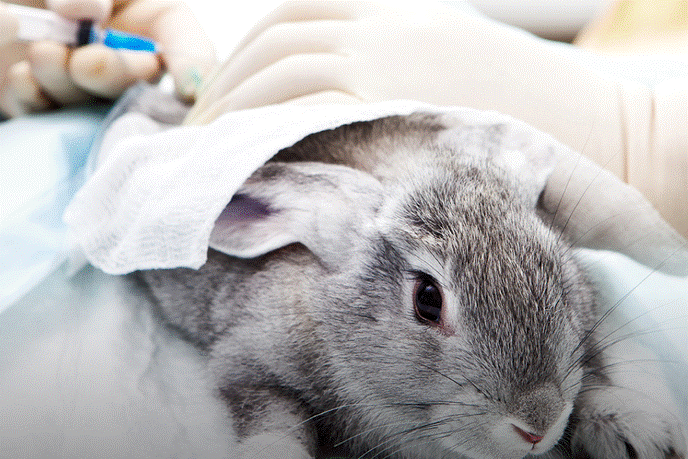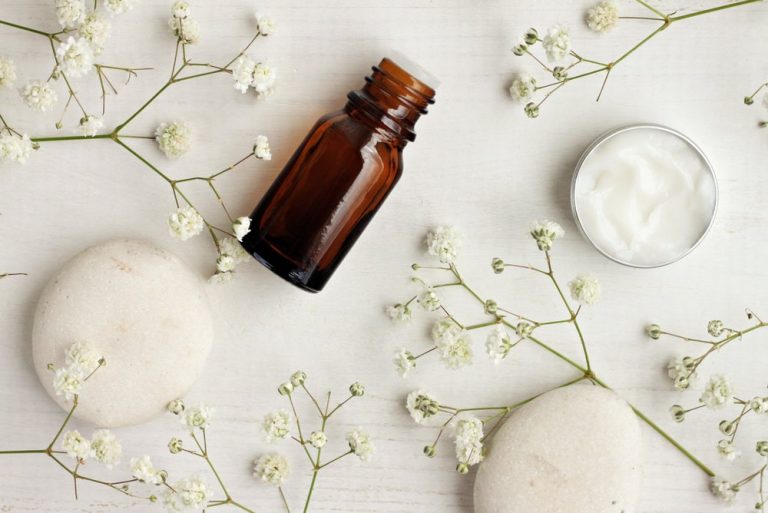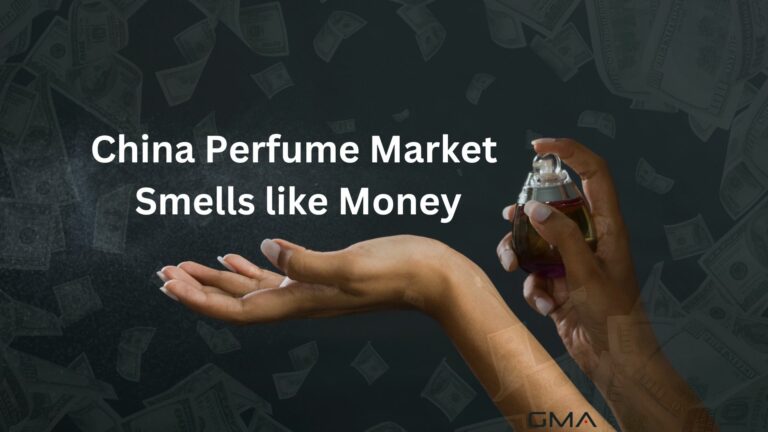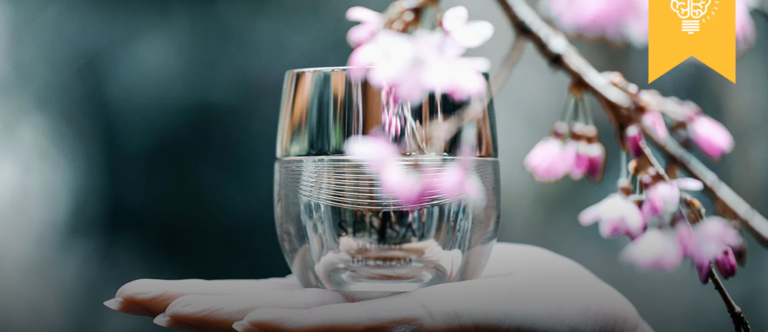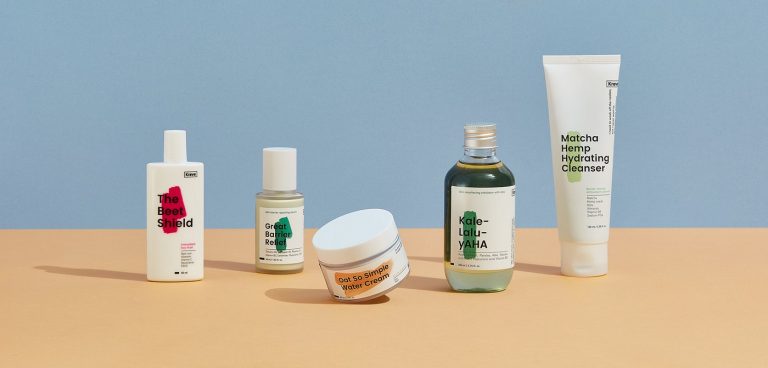China Cosmetics Market: What are the Trends and Opportunities in China’s Beauty Sphere
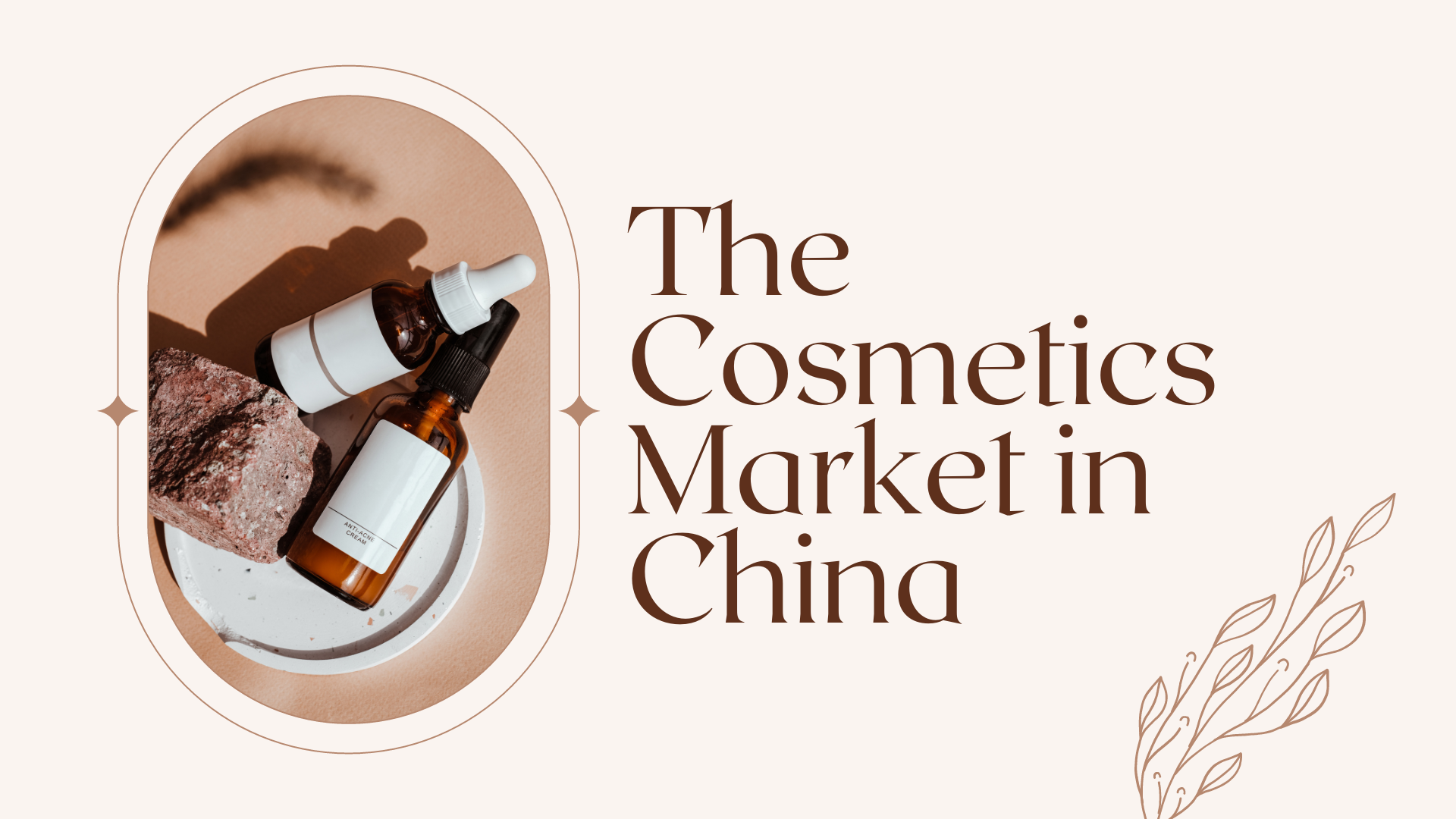
Navigating the dynamic landscape of China’s beauty market can feel like an uphill battle. We’ve faced the same challenges, and with the Chinese beauty and personal care market expected to reach over $87 billion in 2025, we knew it was crucial to dig deep and understand this booming industry.
Through this blog post, we’ll guide you through consumer behaviors, digital marketing strategies, product trends, and licensing processes for foreign brands in China’s capitalistic sea of opportunities—the world’s largest beauty market! Are you ready to dive deeper?
Cost-Effective Agency
KPI and Results focused. We are the most visible Marketing Agency for China. Not because of huge spending but because of our SMART Strategies. Let us help you with: E-Commerce, Search Engine Optimization, Advertising, Weibo, WeChat, WeChat Store & PR.
Key Takeaways
- The China cosmetics market is expected to reach a value of $87.64 billion by 2025, with an annual growth rate of 6%.
- China’s cosmetics market has a higher annual growth rate (9.1%) than the global average, making it a significant player in the global cosmetics industry.
- Key players in the Chinese cosmetics market include L’Oreal, Estee Lauder, Procter & Gamble (P&G), Shiseido, Amorepacific, Perfect Diary, Chanel, Pechoin, Mary Kay, and Watsons.
- Consumer behavior and preferences are influenced by factors such as age (Gen Z and millennials drive the market), gender (women are major consumers but men present opportunities), income level (higher disposable income leads to premium brand purchases), and lifestyle trends (increased interest in natural and organic products).
Overview of the China Cosmetics Market
The burgeoning growth of the cosmetics market in China has reached remarkable figures. Let’s delve into the specifics to give you a more accurate picture.
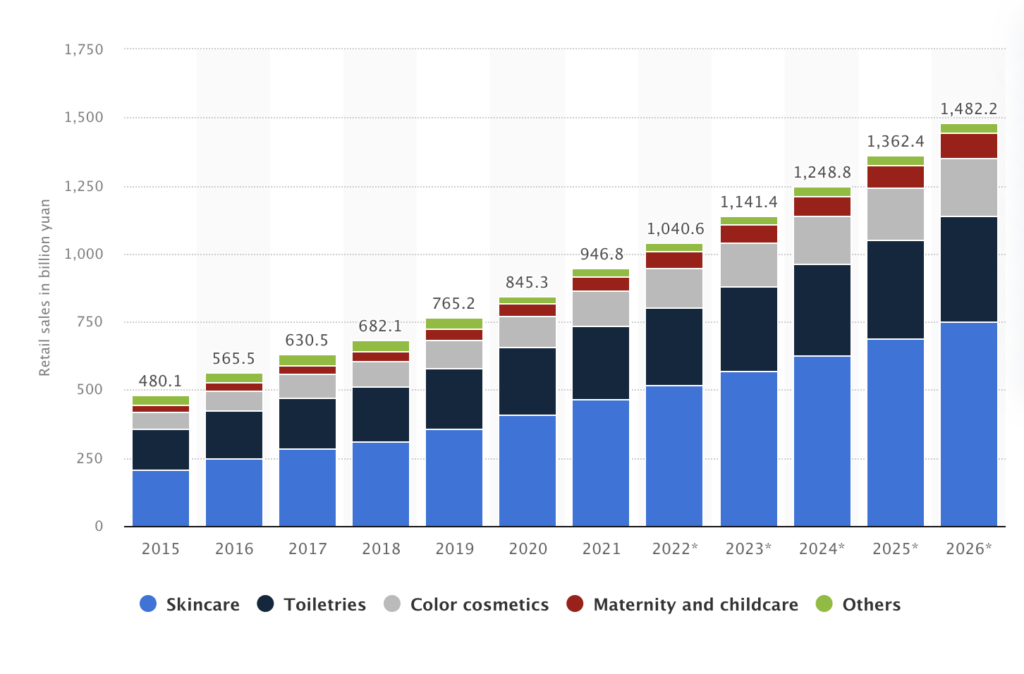
The cosmetics market in China has reached $56 billion in 2021 and is expected to reach $87 billion in 2025, with a projected annual growth rate of 6%.
The consistent growth and impressive sales in the China cosmetics market underline the immense potential that this market offers to both domestic and international brands. As you can see above, skincare is the most popular sector of China’s beauty market. Cosmeceuticals take a back seat currently occupying only 24% of China’s cosmetics market share, but their popularity is steadily increasing among GenZ consumers and male customers too who are becoming more invested in grooming practices thereby setting stage for potential expansion opportunities.
Key local and international players in the market
The Chinese cosmetics market is a thriving industry with numerous local and international players. Here are some key players in the market:
L’Oreal
As one of the largest beauty companies globally, L’Oreal has a strong presence in China. The company offers a range of skincare, haircare, and makeup products under various brands such as L’Oreal Paris, Maybelline, and Lancome.
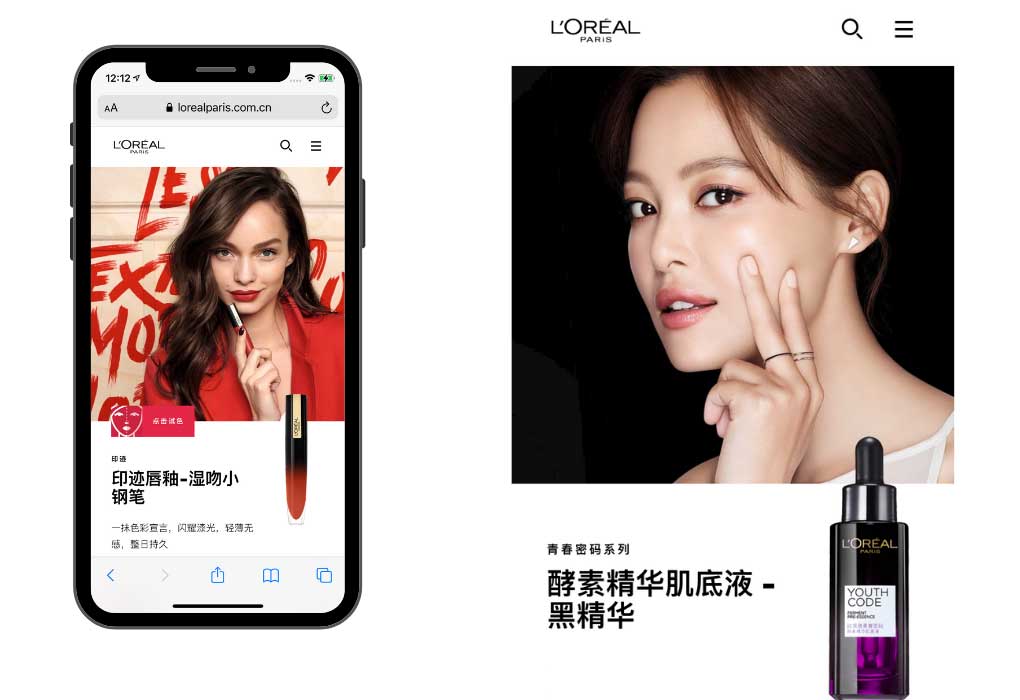
Estee Lauder
This American multinational company is renowned for its high-end skincare and makeup brands, including Estee Lauder, Clinique, and Bobbi Brown. It has successfully tapped into the Chinese market with its premium offerings.
Procter & Gamble (P&G)
P&G is another major player in China’s cosmetics market, offering popular consumer brands like Olay, SK-II, and Pantene. The company leverages its extensive product portfolio to cater to diverse consumer needs.
Shiseido
Shiseido is a leading Japanese cosmetics company that has established a strong presence in China. Known for its innovative skincare and beauty products, Shiseido caters to different segments of the market with brands like Shiseido, Clé de Peau Beauté, and Anessa.
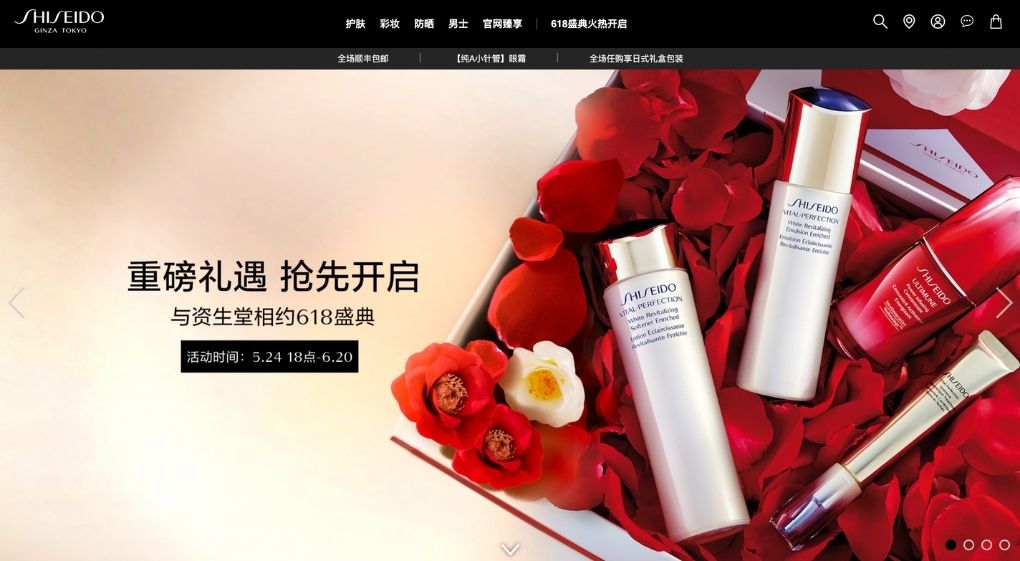
Amorepacific
This South Korean beauty conglomerate owns several successful brands in China’s cosmetics market, including Sulwhasoo, Laneige, Etude House, and Innisfree. Amorepacific’s focus on natural ingredients appeals to Chinese consumers.
Perfect Diary
As a homegrown brand that gained rapid popularity in recent years, Perfect Diary provides affordable yet trendy makeup products targeting young Chinese consumers. Its digital marketing strategies have played a crucial role in its success.
Chanel
This iconic French luxury brand has built a loyal customer base in China with its premium skincare and makeup offerings. Chanel’s reputation for elegance and sophistication resonates well with Chinese consumers seeking luxury beauty experiences.
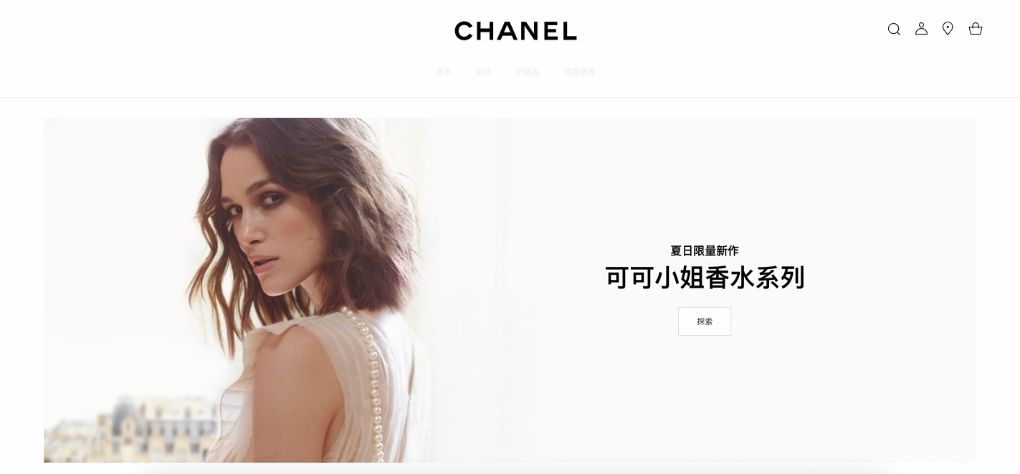
Consumer Behavior and Preferences in the Chinese Cosmetics Market
Chinese cosmetics consumers exhibit diverse preferences and behaviors, influenced by factors such as age, income level, cultural values, and social media trends.
Demographics of cosmetics consumers (age, gender, income level, etc.)
The Chinese cosmetics market is significantly driven by factors like age, gender, and income level. To give you a clearer picture, here’s a breakdown in table format:
| Demographic Factor | Details |
|---|---|
| Age | The Chinese beauty market is primarily driven by female Gen-Z and Millennials. On top of that, women under 40 spent more on cosmetics in 2020. |
| Gender | Women are the major consumers in the cosmetics market, but the market also offers opportunities for men. This opens up a new demographic that brands can explore. |
| Income Level | Behavioral changes in consumption and upgrades signal a shift in income levels. As consumers gain higher disposable income, they are more likely to spend on premium and luxury cosmetics brands. |
| Lifestyle Trends | Chinese consumers are increasingly interested in natural and organic products, driven by an evolving lifestyle and an increased focus on wellness and health. |
Cultural factors
Chinese consumers have a distinct preference for cosmetics products that use natural ingredients due to concerns over the potential risks associated with chemical-based products.
This emphasis on natural skincare aligns with traditional Chinese beliefs about holistic health and wellness.
In addition, the skincare market in China is heavily influenced by cultural trends from other countries. Japanese, Korean, and European skincare products are highly popular among Chinese consumers, with many incorporating these brands into their daily routines.

The influence of Generation Z should not be underestimated either; this tech-savvy demographic group has reshaped consumer behavior through its embrace of social media platforms as well as shifting perceptions of beauty.
Demand for premium and luxury brands
Chinese consumers are increasingly seeking high-end beauty products that offer exclusivity, sophistication, and prestige.
In fact, around 28 percent of Chinese consumers prefer to purchase luxury or premium cosmetics. This trend presents a significant opportunity for both domestic and international brands looking to tap into this lucrative market.
China’s rise as the third-largest skincare market globally further highlights the shift in consumption patterns among its population. With an expanding beauty industry driven by the demands of Gen-Z and male customers seeking skincare solutions, sales of beauty and personal care products have seen substantial growth according to Euromonitor International’s research.
Global brands have also benefited from the surge in demand for luxury products in China. Establishing a strong presence in this competitive market is vital, considering that L’Oreal holds a significant share with its popular cosmetic offerings among Chinese consumers.
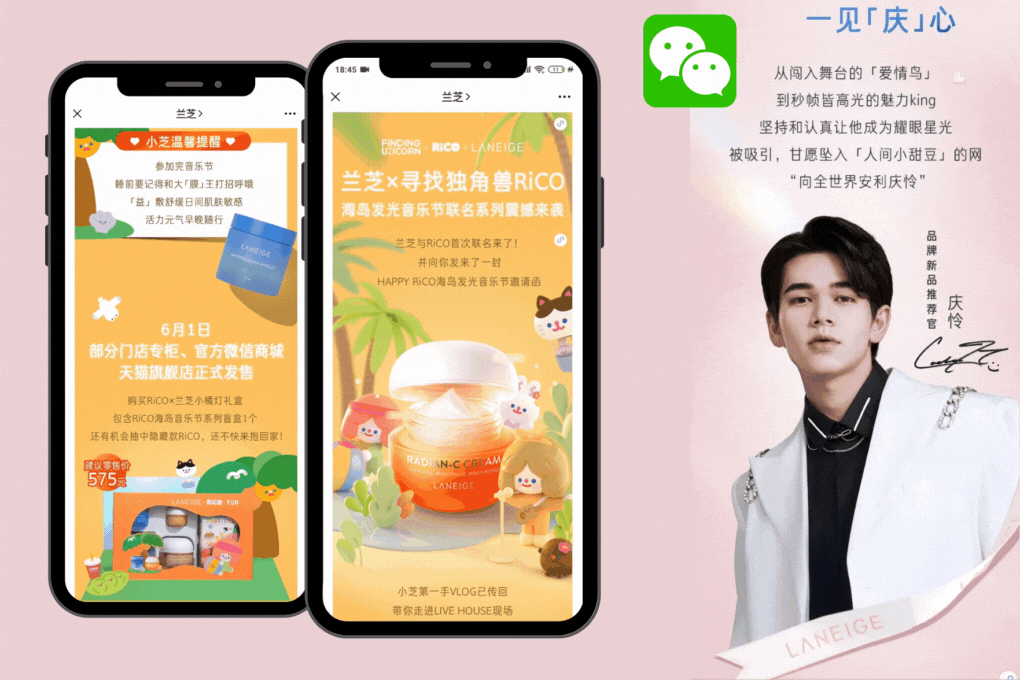
Influence of social media and influencers
In the rapidly evolving world of cosmetics marketing, social media and influencers play a crucial role in shaping consumer behavior and preferences.
Recent studies have shown that social media marketing has a significant influence on consumers’ behavior when buying cosmetic products in China. From enhancing brand visibility and credibility through collaborations with influencers to leveraging the trustworthiness and attractiveness of these social media personalities, utilizing influencer marketing can be highly effective in reaching young female customers and driving sales.
With Key Opinion Leaders (KOLs) becoming an integral part of the Chinese cosmetics industry, their influence over product attitude and purchase intention cannot be underestimated. By partnering with KOLs who resonate with your target audience, you can tap into their loyal followership and leverage their powerful networks to increase brand awareness and ultimately boost sales.
Growing interest in natural and organic products
Chinese consumers are increasingly embracing a healthier lifestyle and seeking beauty options that align with their values of sustainability and environmental consciousness.
This shift is driven by several factors, including concerns over the exploitation of natural resources for beauty products and a desire for personal care items made with natural ingredients.
The demand for natural and organic cosmetics presents an enormous opportunity for brands looking to tap into this emerging trend. With China being the third-largest skincare market globally, there is a substantial consumer base ready to embrace these products.
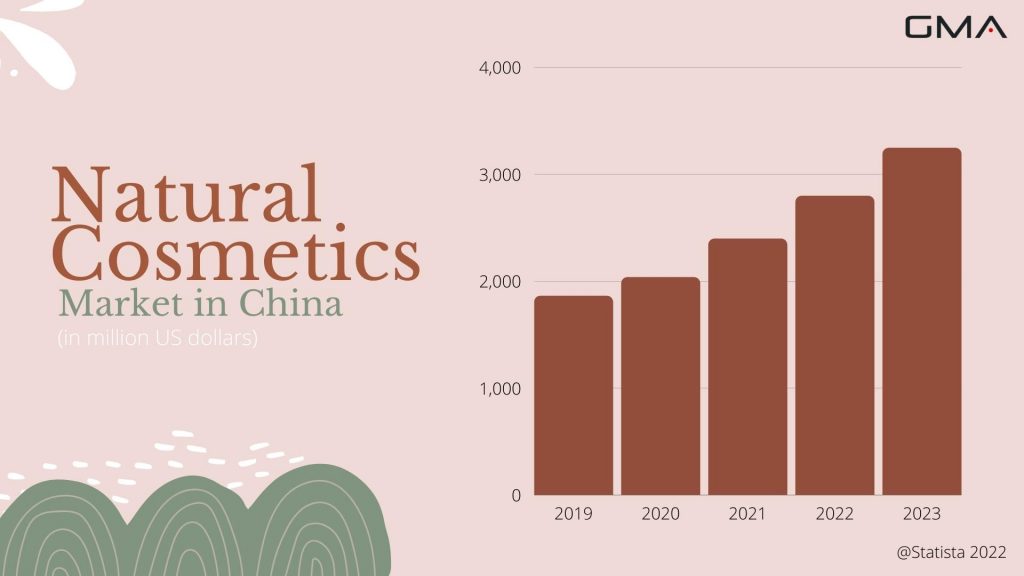
To capitalize on this growing interest in natural and organic beauty products, it’s essential to emphasize your brand’s commitment to sustainable practices, use of natural ingredients, and dedication to creating environmentally friendly packaging.
By incorporating these elements into your marketing strategies tailored specifically to the Chinese audience through e-commerce platforms like Alibaba or JD.com and leveraging social media networks such as WeChat or Douyin (Chinese TikTok), you can effectively connect with targeted consumers who value wellness-centric lifestyles.
E-commerce and Digital Marketing Strategies in the Chinese Cosmetics Market
E-commerce platforms like Alibaba and JD.com dominate the Chinese cosmetics market, making digital marketing strategies crucial for success. Brands must prioritize controlling their e-reputation, utilizing Baidu SEO, and managing social networks such as WeChat, Weibo, Douyin (Chinese TikTok), and RED (Xiaohongshu).
Additionally, live-streaming has become a popular tool for product promotion in this online-driven market.
E-commerce platforms to consider
Chinese e-commerce platforms have revolutionized the industry by providing convenient shopping experiences and low-cost sales channels for brands.
In fact, China’s e-commerce market is now the largest globally, with billions of dollars in online sales annually. This presents significant opportunities for foreign brands looking to tap into China’s booming e-commerce market.
Whether it’s selling skincare products or beauty items, leveraging these platforms can help you reach a wide audience and capitalize on the country’s love for online shopping. So when planning your digital marketing strategies, remember that partnering with dominant e-commerce players like Alibaba and JD.com is essential for success in the Chinese cosmetics market.
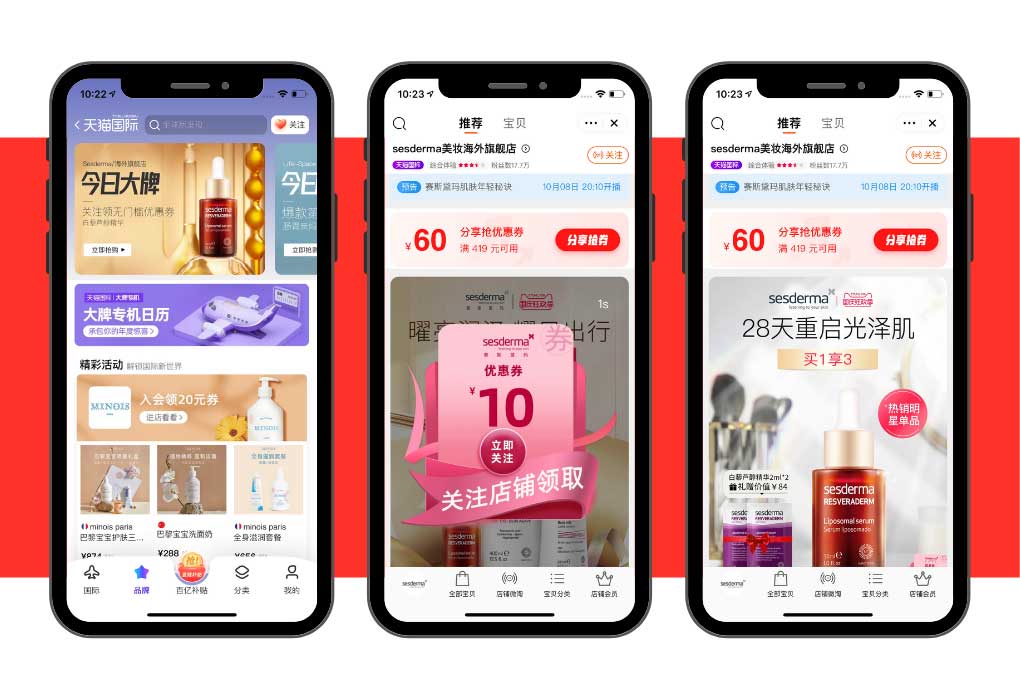
Digital marketing practices
When it comes to the Chinese beauty market, digital marketing is not just important – it’s essential for success.
E-commerce dominates the retailing of cosmetic products in China, with more than half of the market share in 2023. This means that your brand needs to have a strong online presence to reach and engage with Chinese beauty consumers effectively.
Chinese beauty consumers heavily rely on digital marketing to make purchasing decisions. With the influence of social media and influencers, they are constantly exposed to new products and trends through platforms like WeChat, Weibo, Douyin (Chinese TikTok), and RED (Xiaohongshu).
Utilizing these platforms as part of your digital marketing strategy can help increase brand visibility and attract potential customers.
In addition, having a well-designed website is crucial for brand visibility and consumer engagement in China’s cosmetics market. While direct selling may not be its primary purpose, your website acts as a virtual storefront where customers can learn about your brand story, explore product offerings, and interact with your content.
It’s an opportunity to showcase your expertise while building trust among potential buyers.
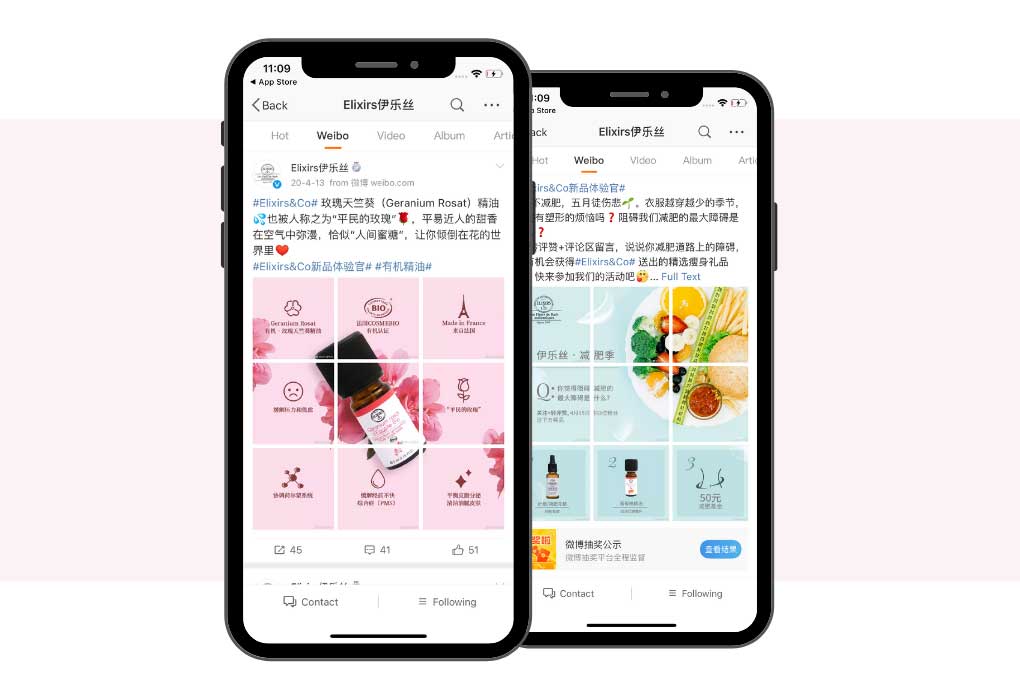
Control your e-reputation
In today’s digital age, maintaining control of your brand’s online reputation is crucial in the highly competitive Chinese cosmetics market. With the dominance of e-commerce platforms and consumers relying on digital channels for product information and reviews, actively managing your e-reputation can make or break your success.
The online reputation management includes leveraging digital advertising strategies to enhance brand visibility, monitoring and responding to customer feedback on popular social networks like WeChat and Weibo, as well as utilizing Baidu SEO techniques to improve search engine rankings.
By understanding consumer behavior and preferences, engaging with influential bloggers and influencers, and staying up-to-date with current trends in the industry, you can effectively control your e-reputation and establish a strong presence in the Chinese cosmetics market.
Utilizing Baidu SEO
Baidu, being the dominant search engine in China, plays a significant role in driving online visibility and attracting potential customers.
By optimizing your website and content for Baidu’s algorithms and considering the nuances of the Chinese language, culture, and search behavior, you can effectively increase your online presence.
This not only improves your chances of reaching a larger consumer base but also gives you a competitive advantage over other foreign brands. With over 1.05 billion internet users in China, having a solid digital marketing strategy that incorporates Baidu SEO is essential for success in the Chinese cosmetics market.
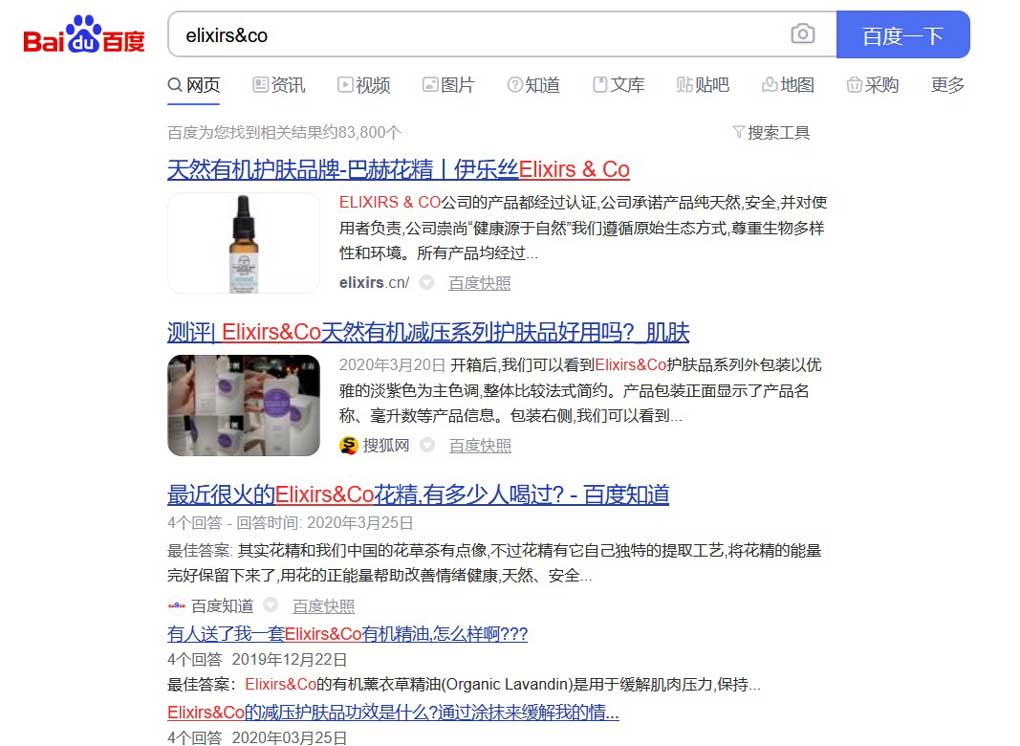
Managing social networks: WeChat, Weibo, Douyin, and RED (Xiaohongshu)
We have extensive experience in managing social networks in the Chinese cosmetic market, specifically on platforms such as WeChat, Weibo, Douyin (Chinese TikTok), and RED (Xiaohongshu). Here are some key insights and strategies for effectively utilizing these platforms:
- WeChat: This is the number one social media platform in China and offers a range of features that can be leveraged for digital marketing. Messaging features allow for direct communication with customers, while blogging features enable content creation and promotion. Live streaming on WeChat is another powerful tool for product demonstrations and promotions.
- Weibo: Often referred to as the Chinese Twitter, Weibo is an ideal platform for luxury brand management. It provides opportunities to organize events, engage with influencers, and endorse celebrities. Leveraging celebrity endorsements on Weibo can significantly enhance brand recognition and attract more consumers.
- Douyin (Chinese TikTok): With its focus on short videos, Douyin has become incredibly popular among young people in China. Brands can capitalize on this platform by creating engaging video content that showcases products or demonstrates makeup tutorials. The ability to share short videos provides a unique opportunity to capture attention in a creative way.
- RED (Xiaohongshu): This social media app functions similarly to Instagram and appeals primarily to younger users. Its photo and video sharing features make it an excellent platform for brand storytelling and influencer collaborations. Brands should consider leveraging user-generated content and partnering with popular influencers to increase their reach on RED.
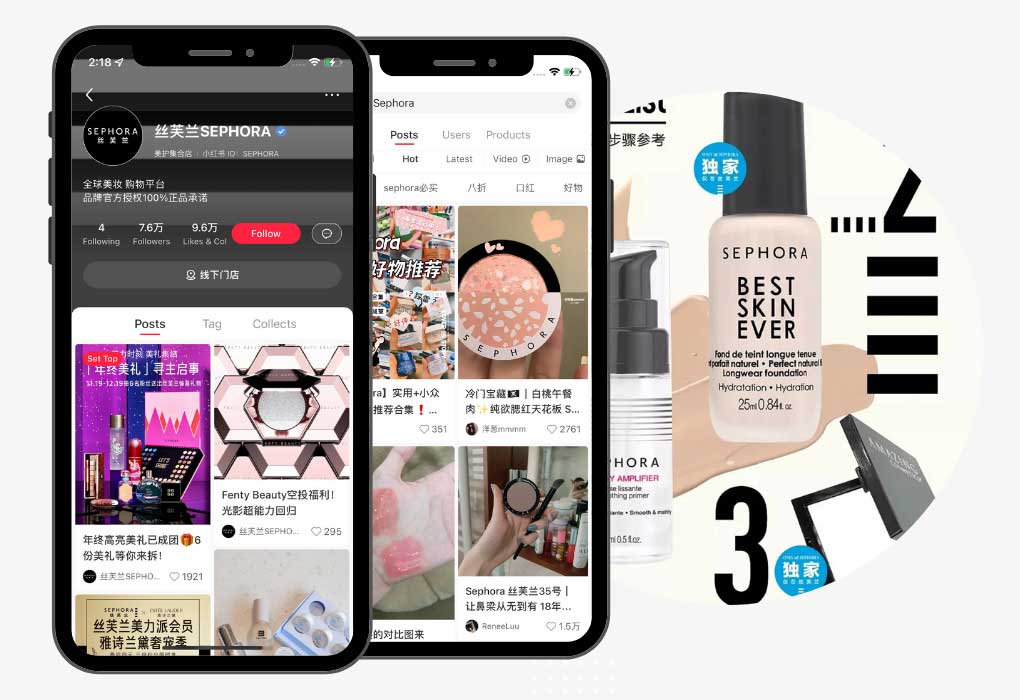
Use of livestreaming for product promotion
Livestreaming has revolutionized the way beauty brands promote their products in the Chinese cosmetics market. It has become an essential tool for gaining the trust of Chinese consumers and boosting sales.
In fact, e-commerce platforms have now become the largest sales channel for cosmetics in China, with livestreaming accounting for nearly 50% of online orders. This innovative approach, known as live commerce, combines online live stream broadcasts with e-commerce stores to create an interactive shopping experience.
The effectiveness and popularity of livestreaming can be seen from its rapid growth in the market. From 2019 to 2022, livestreaming doubled its market share and now represents approximately 10% of Chinese e-commerce.
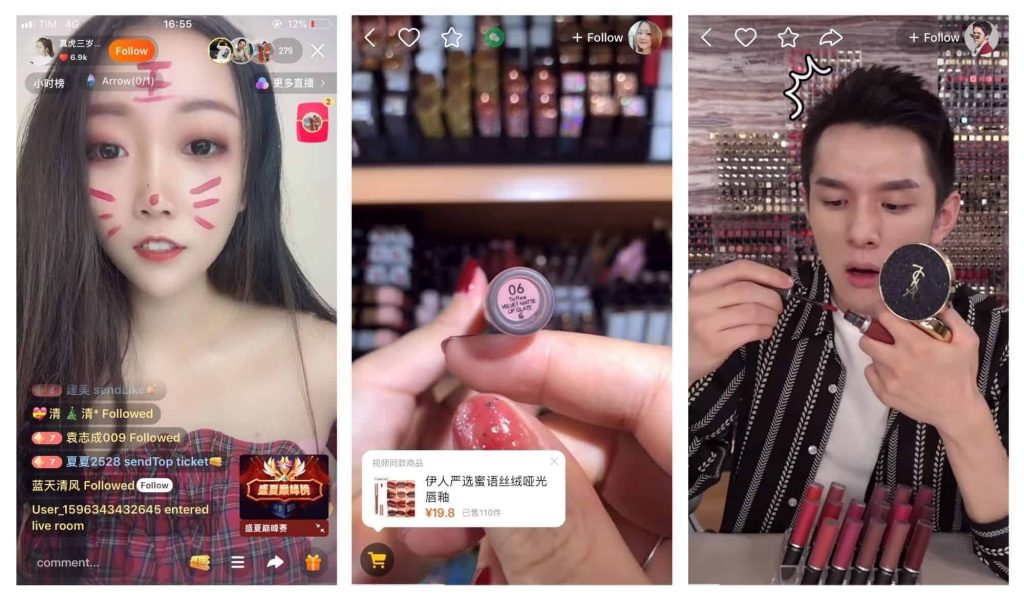
Brands that leverage livestreaming for product promotion gain a competitive edge in this highly competitive industry.
By showcasing products in real-time, engaging directly with consumers, and creating a sense of urgency through limited-time offers or exclusive deals, beauty brands effectively communicate their brand story and drive customer engagement.
Livestreaming also allows brands to provide personalized recommendations based on individual consumer needs.
Product Innovation and Trends in China Cosmetics Market
Product innovation and trends in the China beauty market include a focus on natural and organic formulations, innovative packaging designs, and advancements in technology within the industry.
Trends in product formulation (natural, organic, vegan, etc.)
Here are some key trends to keep in mind:
Natural and vegan cosmetics
Chinese consumers are increasingly seeking out natural and organic cosmetic products. These products are perceived as healthier and safer for the skin due to their use of natural ingredients instead of synthetic chemicals.
Another growing trend is the demand for vegan cosmetics, which are free from any animal-derived ingredients or by-products. Chinese consumers who follow a vegan lifestyle or have ethical concerns appreciate the availability of cruelty-free options.
Clean beauty and sustainable cosmetics
The concept of clean beauty encompasses products that are free from potentially harmful ingredients such as parabens, sulfates, and phthalates. Chinese consumers are becoming more knowledgeable about ingredients and prefer products that prioritize safety and transparency.
Eco-consciousness is gaining traction among Chinese consumers, leading to an increased interest in sustainable cosmetics. Brands that focus on ethical sourcing, recyclable packaging, and reducing their carbon footprint resonate well with environmentally aware customers.
Plant-based skincare
Skincare products featuring natural plant extracts and botanical ingredients are highly sought after in China. Chinese consumers value the traditional wisdom associated with these ingredients, which they believe can provide effective results without harsh chemicals.
With greater awareness about potential health risks associated with certain cosmetic ingredients, there is a preference for nontoxic formulations. Brands that prioritize ingredient safety and disclose complete product information resonate well with health-conscious consumers.
Eco-friendly packaging
In the ever-evolving world of cosmetics, packaging trends play a vital role in captivating consumers and making brands stand out. In the Chinese cosmetics market, where innovation is highly valued, keeping up with packaging trends is crucial for success.
Chinese consumers are drawn to visually appealing and unique packaging designs that convey luxury and elegance. Additionally, sustainable design strategies have gained importance due to increasing environmental concerns.
Brands that incorporate eco-friendly materials and emphasize sustainability in their packaging are likely to resonate with Chinese consumers who prioritize conscious consumption. With the China personal care packaging market projected to grow at a CAGR of 6.72% by 2027, staying ahead of emerging packaging trends can provide lucrative opportunities for both domestic and international brands looking to thrive in this expanding market.
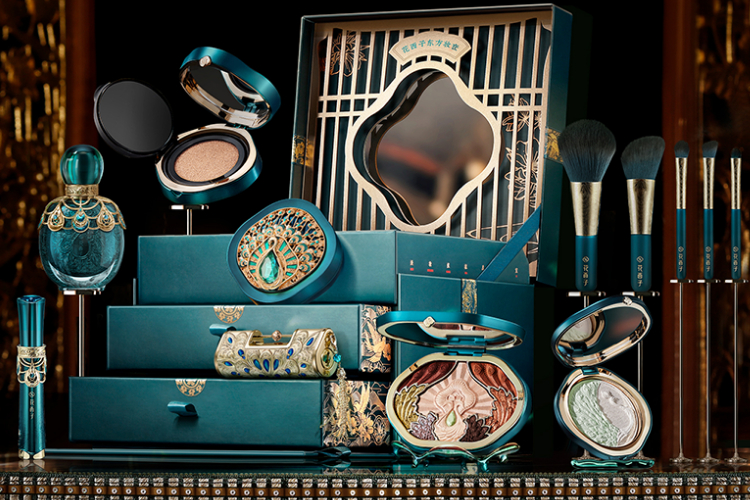
Technological innovation in the cosmetics industry
In China, research and development (R&D) have become increasingly crucial for cosmetics companies looking to capture market share. Technological advancements are shaping product formulations, packaging designs, and even manufacturing processes.
For instance, natural and organic products are gaining popularity among Chinese consumers who seek sustainable options. This has led to an increase in innovative formulations that incorporate plant-based ingredients or focus on sustainability.
Packaging trends are also being influenced by technology, with smart packaging solutions that enhance user experience or provide personalized skincare recommendations.
Furthermore, technological innovation plays a significant role in digital marketing strategies within the Chinese cosmetics market. Brands leverage e-commerce platforms like Alibaba and JD.com to reach a wide audience online.
Registration process for foreign cosmetics brands
The registration process for foreign brands in China’s cosmetics market is a crucial step to ensure compliance with the country’s regulations. Here are the key points to note:
- Prepare necessary documents: Submit required documents, including a notarized appointment letter and the business license of the agent representing the brand in China.
- Visit local authorities: Visit the local Administration for Market Regulation (AMR) office or its online platform to initiate the registration process.
- Online filing: File an application through the relevant online system, providing detailed information about your brand and products.
- Product information submission: Provide comprehensive details about each cosmetic product, such as ingredients, formulation, manufacturing process, and packaging.
- Safety assessment report: Chinese regulations require a safety assessment report for each product category. This report should demonstrate that your products meet safety standards and do not contain prohibited substances.
- Testing requirements: In certain cases, imported cosmetics may be subject to animal testing as part of the registration process. However, recent regulatory changes indicate a shift towards cruelty-free options.
- Approval and certificate issuance: Once all requirements are met and inspections conducted, you will receive an approval notice and a hygiene permit for imported cosmetics.
- Compliance monitoring: After obtaining the necessary permits and certificates, it is essential to comply with ongoing monitoring requirements by conducting self-inspections and submitting annual reports.
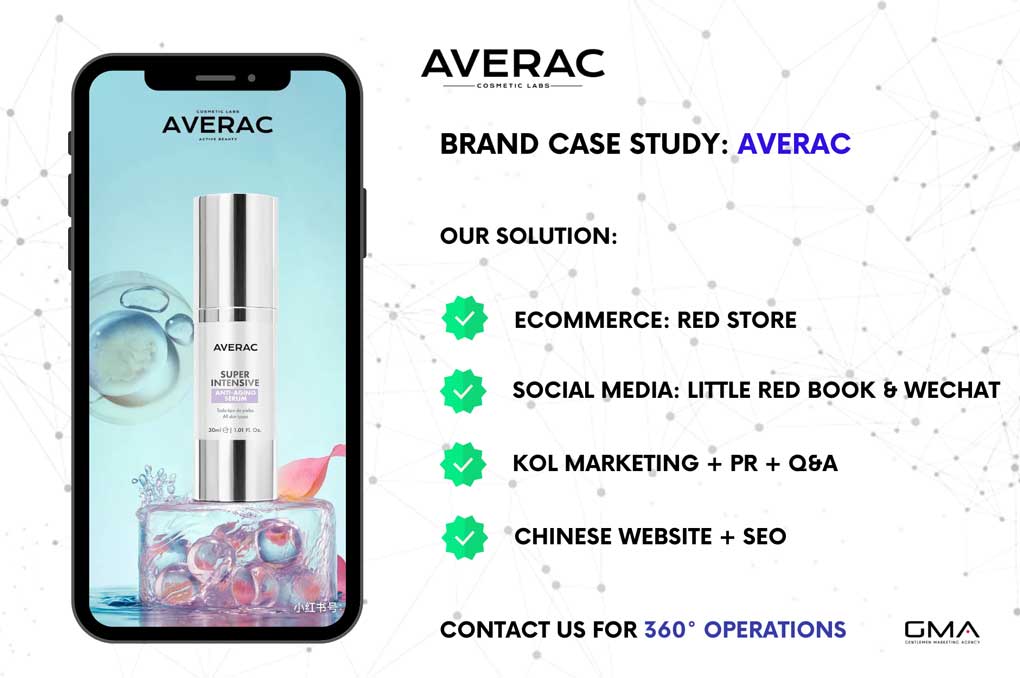
Animal testing requirements and changes
In the past, China has had mandatory animal testing for cosmetics, making it difficult for cruelty-free brands to enter the market.
However, recent regulatory changes have impacted these requirements. The Cosmetic Supervision and Administration Regulation (CSAR) is a significant change that has been introduced to address this issue.
While it doesn’t completely eliminate animal testing in China, it does provide some relief for overseas cruelty-free brands looking to expand into the Chinese market. As of May 1, 2021, “ordinary” cosmetic products with a GMP certificate no longer require pre-market animal testing in China.
The role of CFDA (China Food and Drug Administration)
CFDA plays a central role in ensuring compliance with Chinese regulatory requirements and maintaining the safety and quality of cosmetic products.
This agency formulates and enforces regulations for food, drugs, medical devices, and cosmetics. It organizes licensing processes for foreign brands looking to enter China’s cosmetics market, including drug registration and administrative licensing.
Navigating China’s complex regulatory environment can be challenging for foreign companies, but understanding and adhering to CFDA’s regulations are essential for successful entry into this lucrative market.
Contact us to promote your cosmetics brand in China!
Navigating the complex landscape of China’s cosmetics market can be challenging. That’s where we, at Gentlemen Marketing Agency, come in. With our deep understanding of the market trends and consumer behaviors, we have been assisting numerous international brands in establishing and growing their presence in this thriving market.
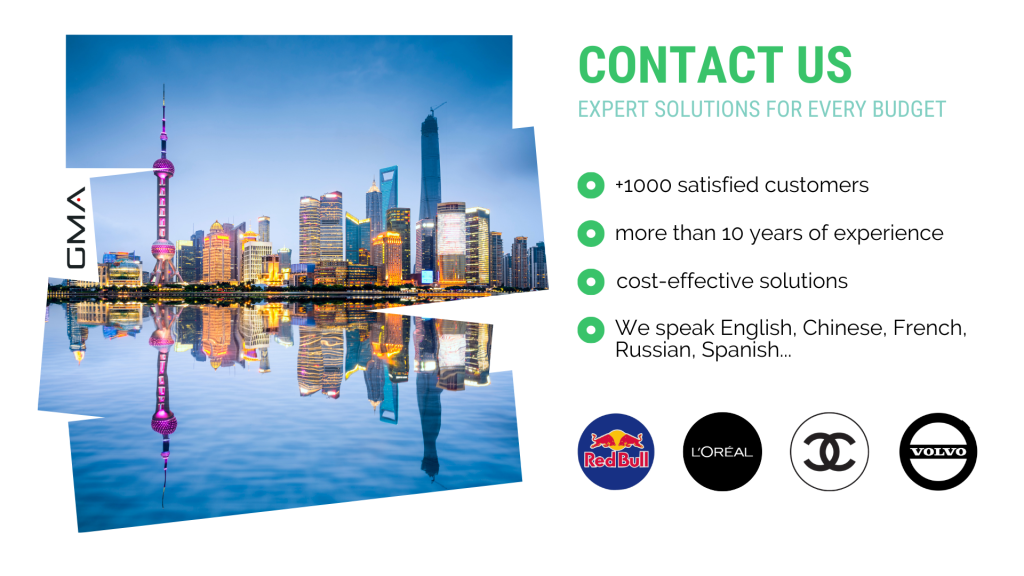
Our services range from market research and branding strategy to social media management and influencer collaborations. We understand that each brand is unique, and so, we tailor our strategies to best align with your brand values and objectives.
Our goal is to help you connect with the Chinese audience in a way that resonates with them, builds brand loyalty, and ultimately drives sales.
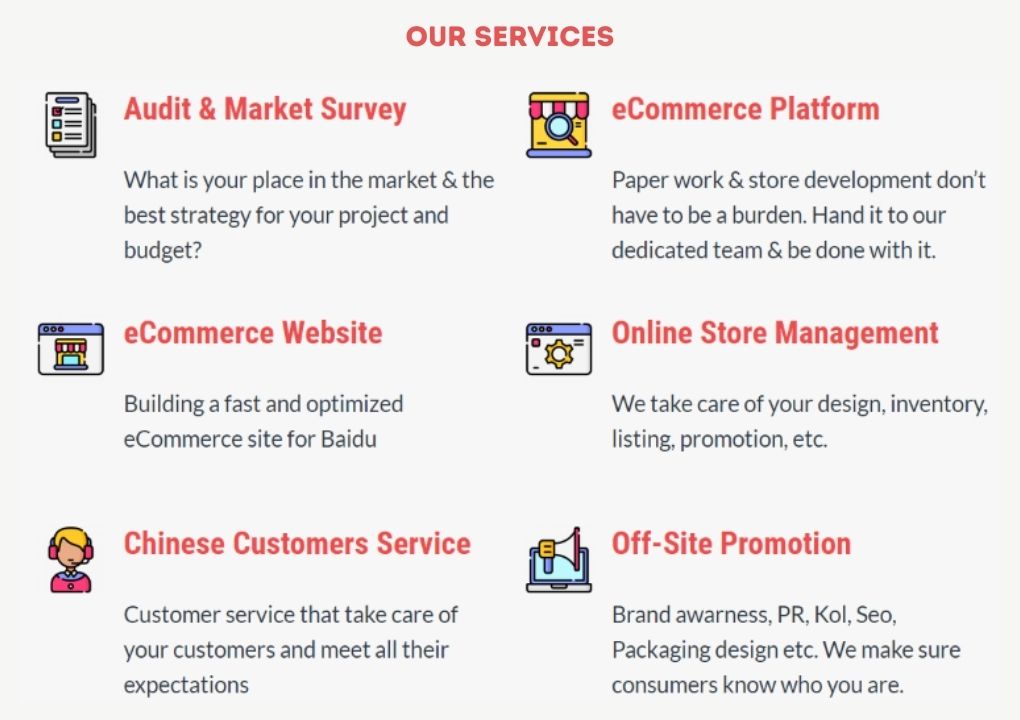
With Gentlemen Marketing Agency by your side, you can confidently step into the Chinese cosmetics market and leverage its potential for your brand’s growth. Contact us today to discuss how we can help you succeed in this promising market.



